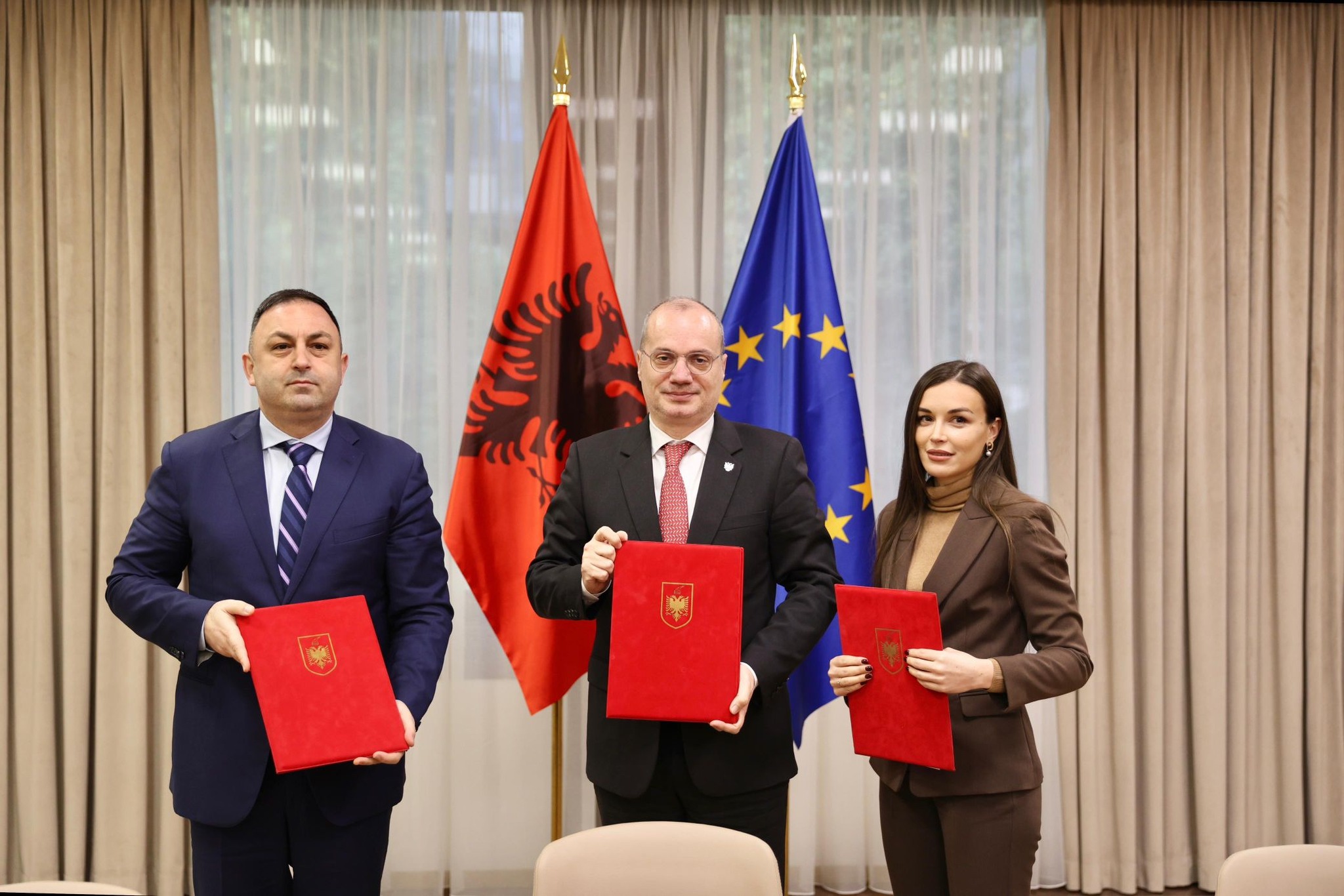New agreement halves time to issue passports and ID cards for diaspora

A new agreement signed by Albania’s Minister for Europe and Foreign Affairs and Minister of Interior, along with the CEO of the state-owned company that issues passports and IDs, “IdentiTek,” will reduce the processing time for biometric documents for Albanians living abroad. The changes cut the issuance time in half, ensuring faster access to essential identification documents.
Why is this important: For the first time, Albanians in the diaspora will be able to vote from their countries of residence in the upcoming parliamentary elections on May 11. While registration with the Central Election Commission’s platform does not require a valid ID, a current passport or ID card issued by Albanian authorities is mandatory to cast a vote. By halving the processing time, this initiative will help eligible diaspora voters obtain the necessary documents on time, ensuring broader participation in the election.
Context: Previously, obtaining biometric documents took up to 30 days. Under the new agreement, this has been reduced to just 15 days for citizens living abroad. To accommodate the increased demand, mobile teams will be deployed to countries with high application volumes, and Albanian consulates and authorized representatives will now be able to electronically sign application forms for faster processing.
Both ministers urged diaspora members to apply promptly and check the expiration dates on their passports and ID cards to avoid last-minute issues. The initiative reflects Albania’s commitment to facilitating diaspora engagement in national elections and ensuring that voting rights are upheld.
The CEO of “IdentiTek” emphasized the streamlined process, highlighting the role of mobile teams and enhanced consular capacities in expediting document issuance. The collaboration is expected to ease logistical challenges for the diaspora and ensure their participation in the May elections.


